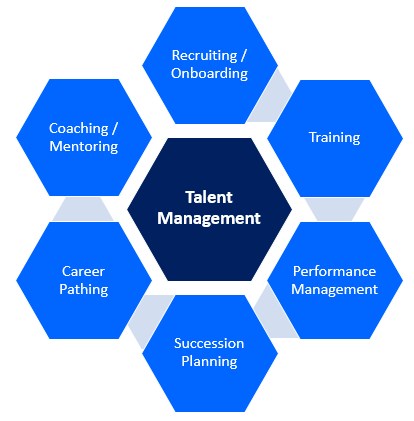Talent Management Definition
Talent management is a set of integrated processes designed to help organizations optimize their human capital to accomplish their goals by building a culture of engagement and commitment through employee training, development, advancement, and retention.
About Talent Management
Talent Management is a holistic approach to optimizing human capital to help ensure an organization has a continuous supply of highly talented and productive individuals in the right job, at the right time. It involves anticipating the required human capital at all levels of an organization and the planning to meet those needs. Plans include implementing and maintaining programs to attract, acquire, train, and promote high quality talent.
A key objective of the programs is to continuously facilitate the movement of talent throughout the organization in an effort to keep employees engaged and developing their skills. Engaged and committed employees remain at organizations, which in turn helps the organization to efficiently and effectively meet their goals.
The Goal
The goal of the talent management process is to increase overall workforce productivity through the improved attraction, retention, and utilization of talent.

The Processes
Talent management helps ensure that organizations gets the right people with the right skills into the right position at the right time. The process includes:
- Planning
- Recruiting
- Onboarding & Engagement
- Training and Development
- Coaching, Mentoring, and Relationship building
- Performance Management
- Career Pathing
- Succession Planning

Benefits
- Aligns workforce with company strategy
- Positions employees to address and accomplish organization’s objectives
- Ensures employees receive the tools, resources, and training
- Increases employee engagement and job satisfaction
- Increases retention rates
- Increases employee motivation
- Increases employee investment in the organization
- Increases customer satisfaction
- Increases operation efficiency
- Allows for personal growth of employees through career-pathing
- Creates an environment where employees feel appreciated, engaged, and empowered
- Develops the necessary competencies for each employee through training
- Fills gaps immediately through succession planning
